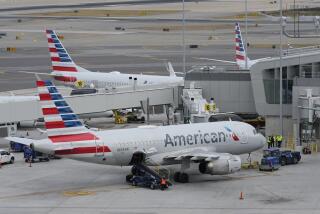Avoiding fees and surcharges on airlinesâ frequent-flier award tickets
Youâve worked hard for your award ticket, piling up miles in hopes of the free ticket at the end of the rainbow.
But surprise: âAward tickets are never free,â says Ben Schlappig, an award travel expert and the founder of the blog One Mile at a Time. âThere is always going to be some quantity of taxes and fees.â
A slew of fees that can cost as much as the ticket may await. âMany programs will charge phone-booking fees, award-processing fees or close-in ticketing fees,â Schlappig said. âAdditionally, airlines often levy fuel surcharges, which can be hundreds of dollars per person.â
Fees you would expect to pay on a regular airline ticket, such as for checked bags or advance seat selection, also apply to award tickets, but there are others as well. Here are the most important and some ideas on how to deal with them.
Taxes and carrier-imposed surcharges: Award travelers should expect to pay taxes on award tickets, but there might also be carrier-imposed surcharges.
Some airlines, such as United, do not impose them; others, such as Air Canada and British Airways, do. And depending on where you are flying, surcharges can total thousands of dollars.
The key, Schlappig says, is to select your carrier wisely.
âIf you are using American AAdvantage miles, for example, youâll pay fuel surcharges on their partner British Airways, but not on American or US Airways,â he said.
Airfares to London are notorious when it comes to these surcharges.
For example, on an economy round-trip ticket from LAX to London on British Airways in February, the base airfare is $256, but travelers will pay an additional $695 in taxes and fees for a total of $951. If you used miles to book this itinerary, you would still have to pay the $695 in taxes and fees on top of the miles you use.
Consider: Flying American to London helps you avoid the big fees. Also, using Unitedâs MileagePlus program, this same route on United would end up costing you just about $198 in taxes and fees â nearly $500 less.
Phone-booking and award-processing fees: The major U.S. carriers will charge you $15 to $40 to book your award by phone and about $50 to issue the ticket.
Some airlines, such as US Airways, will not let you book partner airline awards online, so you have to call.
To book an award, âUS Airways charges a $50 Dividend Miles processing fee,â Schlappig said, âthough they will waive the phone-booking fee for flights on partners that cannot be booked online.â
Consider: Ask the airline to waive these fees. They may say no, but it never hurts to ask.
Close-in booking fees: Most U.S. airlines impose fees for booking awards within a certain window of time (usually 21 days out). American, United and US Airways will charge $75 per ticket to do so, though they will waive this fee for some elite-status fliers.
Consider: Alaska Airlines, British and Delta Air Lines do not impose close-in booking fees, so by booking through one mileage program instead of another, you can end up saving.
Change and cancellation/redeposit fees: When you change an airline ticket, you probably will pay a fee. On an award ticket, Delta and United will charge $100 to $150, but American will let you change your itinerary for free as long as your origin and destination regions remain the same and you are outside that 21-day departure window.
Consider: These fees are also waived for some elite fliers, so the higher your status level, the less you are likely to pay. Concentrating your travel on one or two airlines helps you pile up points or miles, as does using airline-branded credit cards.
The key to avoiding many of these fees is educating yourself about your specific frequent-flier programs and budgeting accordingly.
âI wouldnât choose a frequent-flier program based on trying to avoid small fees, to be honest,â said Schlappig.
Instead, he said he would âfocus more on the ease of accumulating miles, and the values in the award chart.â
More to Read
Sign up for The Wild
Weâll help you find the best places to hike, bike and run, as well as the perfect silent spots for meditation and yoga.
You may occasionally receive promotional content from the Los Angeles Times.






